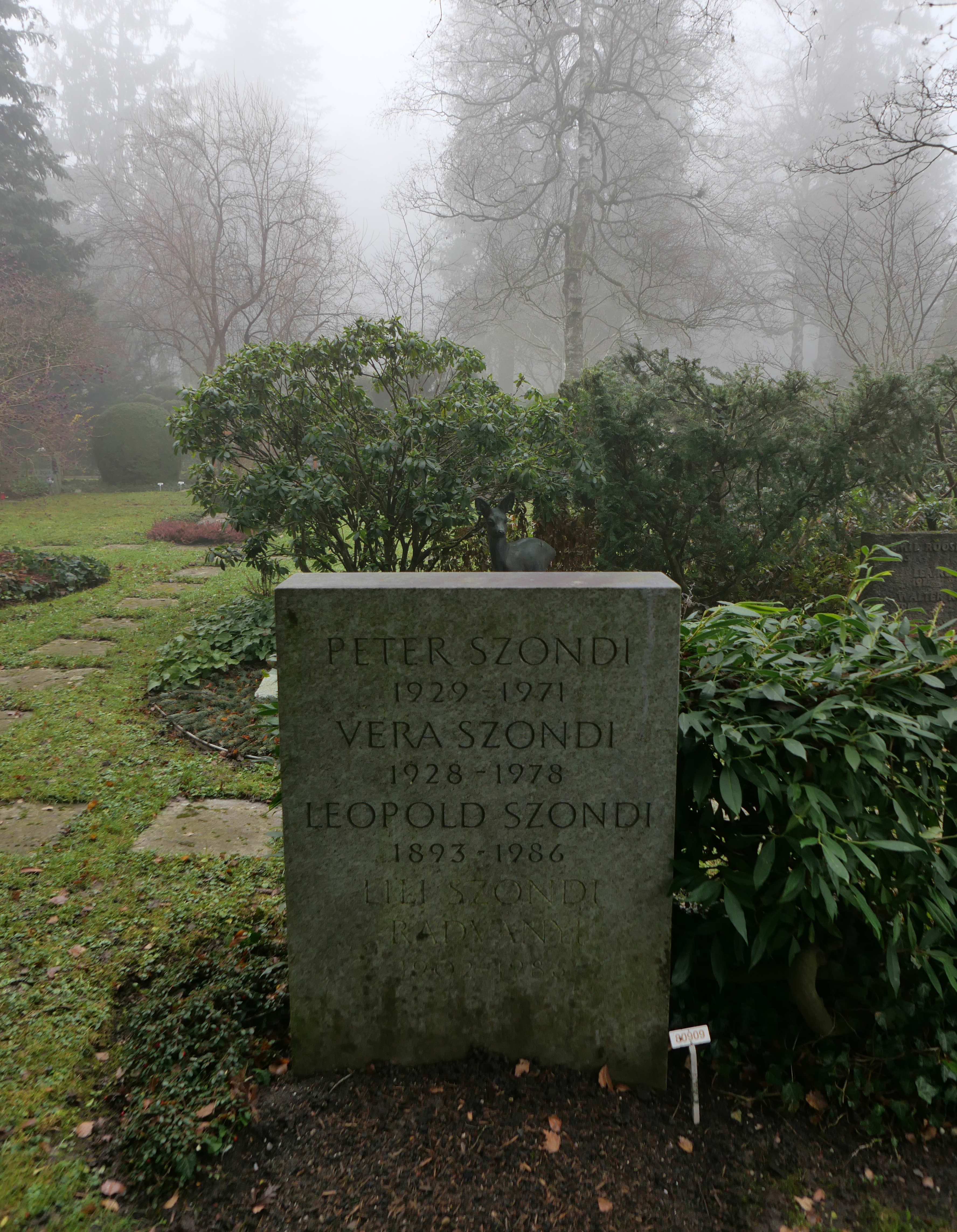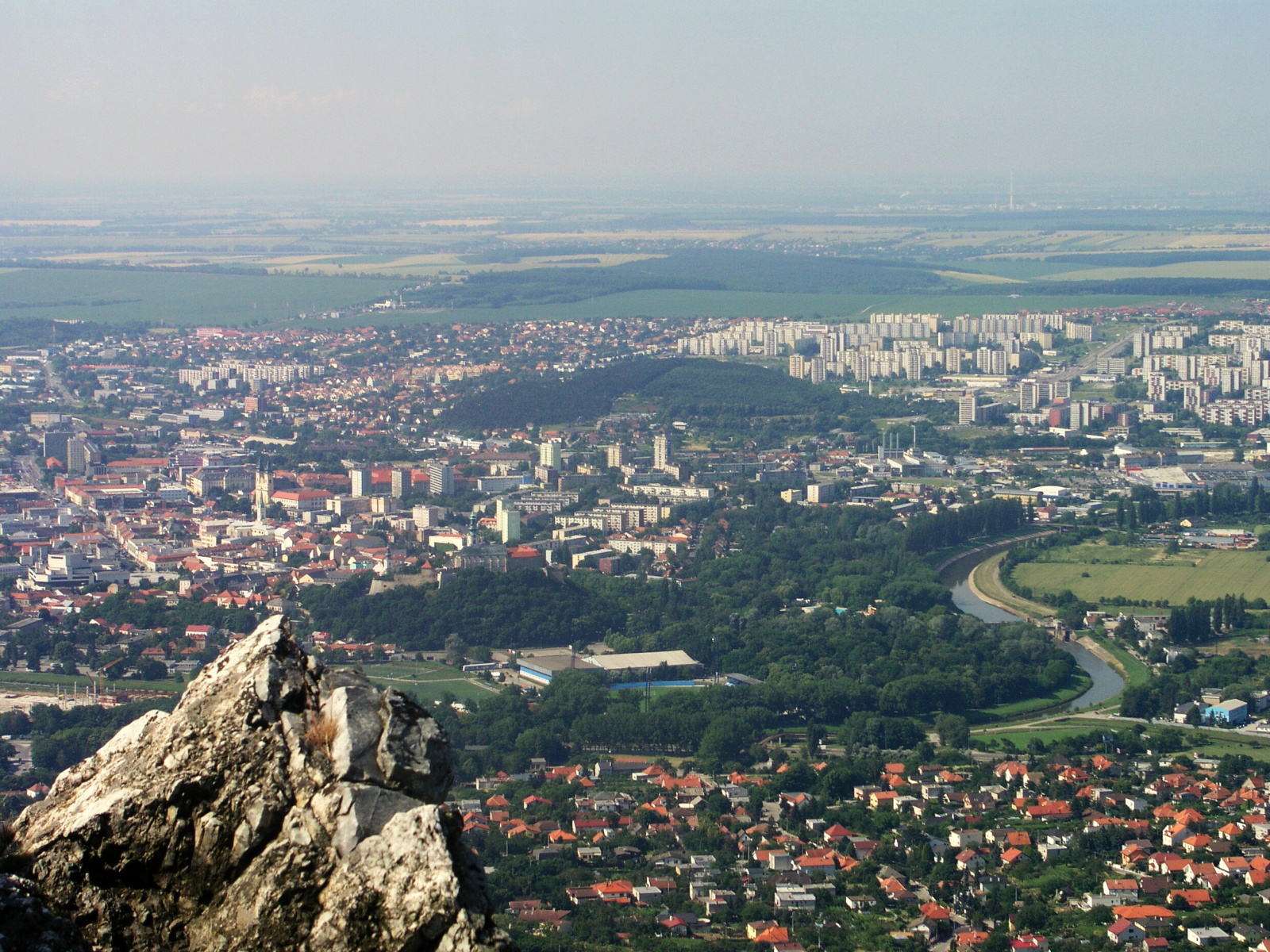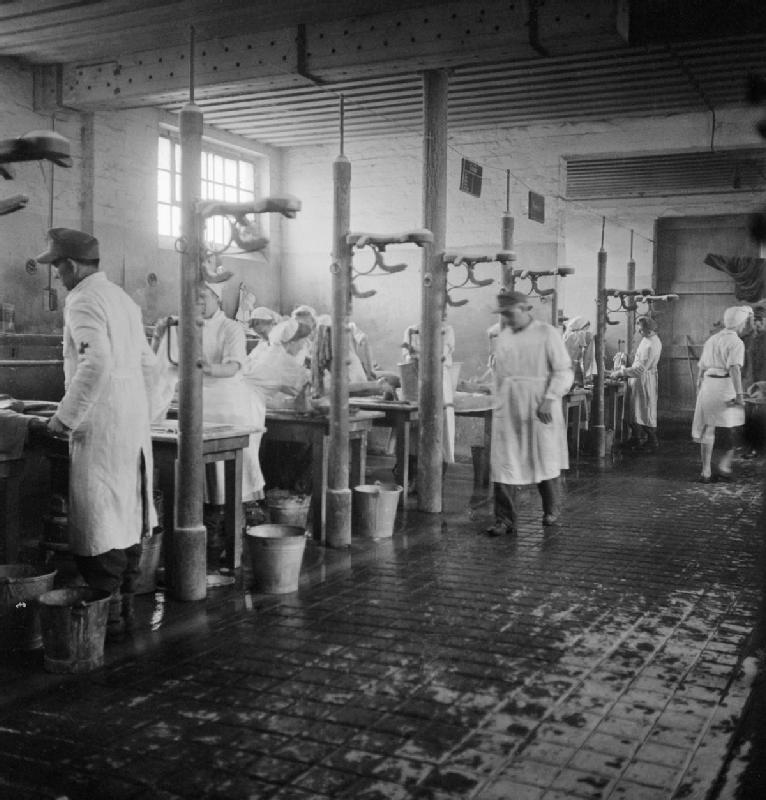|
Léopold Szondi
Léopold Szondi ( ; March 11, 1893 – January 24, 1986) was a Hungarian psychiatrist and psychoanalyst, psychopathologist and Professor of psychology. Founder of the concept of fate analysis. He is known for the now-discredited psychological tool that bears his name, the Szondi test. Biography Szondi was born in city of Nyitra (in present-day Slovakia) and raised in a German and Slovak-speaking Jews, Jewish family. The original name of the family was Sonnenschein. He was born as the twelfth child in his father's second marriage. The family moved to Budapest in 1898. His mother, who died very soon, was remembered by the family as an illiterate, unwholesome woman who had to be supervised by the elder siblings during her depressive periods. The father himself had a huge impact on Szondi, influencing his fate-analytical works to a great extent. These are his own words about his father: "My father was a Jewish shoemaker, who spent most of his time studying the Jewish Holy Scriptur ... [...More Info...] [...Related Items...] OR: [Wikipedia] [Google] [Baidu] |
Nitra
Nitra (; also known by other #Etymology, alternative names) is a city in western Slovakia, situated at the foot of Zobor Mountain in the valley of the river Nitra (river), Nitra. It is located 95 km east of Bratislava. With a population of about 78,353, it is the fifth largest city in Slovakia. Nitra is also one of the oldest cities in Slovakia; it was the political center of the Principality of Nitra. Today, it is a seat of a ''Regions of Slovakia, kraj'' (Nitra Region), and an ''Districts of Slovakia, okres'' (Nitra District). Etymology The first mention of Nitra dates back to the 9th century. The name of the city is derived from the Nitra River. The name is Indo-European languages, Indo-European, but the question of its History of Proto-Slavic#Pre-Slavic, pre-Slavic or Slavic people, Slavic origin has not been satisfactorily answered. Nitra might be derived from the old Indo-European root ''neit-'', ''nit-'' 'to cut' or 'to burn' using the derivational element ''-r-'' (se ... [...More Info...] [...Related Items...] OR: [Wikipedia] [Google] [Baidu] |
Fluntern Cemetery
Also known as Friedhof Fluntern, the Fluntern Cemetery is located in the Zürichberg district of Zürich. Notable interments * Emil Abderhalden (1877–1950), Swiss biochemist and physiologist * Johann Ludwig Aberli (1723–1786), Swiss artist * Thomas Ammann (1950–1993), Swiss art dealer * Anita Augspurg (1857–1943), German lawyer, actor, writer and feminist * Nora Barnacle (1884–1951), wife of James Joyce * Elias Canetti (1905–1994), Bulgarian-born modernist novelist, playwright * Therese Giehse (1898–1975), German actress * Friedrich Hegar (1841–1927), Swiss composer, conductor, violinist * James Joyce (1882–1941), Irish novelist and poet * Paul Karrer (1889–1971), Swiss organic chemist, won the Nobel Prize for Chemistry in 1937 * Daniel Keel (1930–2011), Swiss publisher, founder of Diogenes Verlag * Warja Lavater (1913–2007), Swiss artist and illustrator * Albert Meyer (1870–1953), Swiss politician * Karl Moser (1860–1936), Swiss architect * Wi ... [...More Info...] [...Related Items...] OR: [Wikipedia] [Google] [Baidu] |
Jewish Psychoanalysts
Jews (, , ), or the Jewish people, are an ethnoreligious group and nation, originating from the Israelites of ancient Israel and Judah. They also traditionally adhere to Judaism. Jewish ethnicity, religion, and community are highly interrelated, as Judaism is their ethnic religion, though it is not practiced by all ethnic Jews. Despite this, religious Jews regard converts to Judaism as members of the Jewish nation, pursuant to the long-standing conversion process. The Israelites emerged from the pre-existing Canaanite peoples to establish Israel and Judah in the Southern Levant during the Iron Age. John Day (2005), ''In Search of Pre-Exilic Israel'', Bloomsbury Publishing, pp. 47.5 8'In this sense, the emergence of ancient Israel is viewed not as the cause of the demise of Canaanite culture but as its upshot'. Originally, Jews referred to the inhabitants of the kingdom of JudahCf. Marcus Jastrow's ''Dictionary of the Targumim, Talmud Babli, Talmud Yerushalmi and ... [...More Info...] [...Related Items...] OR: [Wikipedia] [Google] [Baidu] |
Swiss Psychoanalysts
Swiss most commonly refers to: * the adjectival form of Switzerland *Swiss people Swiss may also refer to: Places *Swiss, Missouri * Swiss, North Carolina * Swiss, West Virginia *Swiss, Wisconsin Other uses * Swiss Café, an old café located in Baghdad, Iraq *Swiss-system tournament, in various games and sports *Swiss International Air Lines **Swiss Global Air Lines, a subsidiary *Swissair, former national air line of Switzerland * .swiss alternative TLD for Switzerland See also *Swiss made, label for Swiss products *Swiss cheese (other) *Switzerland (other) *Languages of Switzerland, none of which are called "Swiss" *International Typographic Style, also known as Swiss Style, in graphic design *Schweizer (other), meaning Swiss in German *Schweitzer, a family name meaning Swiss in German *Swisse Swisse is a vitamin, supplement, and skincare brand. Founded in Australia in 1969 and globally headquartered in Melbourne, and was sold to Health & Happin ... [...More Info...] [...Related Items...] OR: [Wikipedia] [Google] [Baidu] |
Swiss Psychiatrists
Swiss most commonly refers to: * the adjectival form of Switzerland *Swiss people Swiss may also refer to: Places * Swiss, Missouri * Swiss, North Carolina * Swiss, West Virginia * Swiss, Wisconsin Other uses * Swiss Café, an old café located in Baghdad, Iraq *Swiss-system tournament, in various games and sports * Swiss International Air Lines **Swiss Global Air Lines, a subsidiary *Swissair, former national air line of Switzerland * .swiss alternative TLD for Switzerland See also *Swiss made, label for Swiss products *Swiss cheese (other) *Switzerland (other) *Languages of Switzerland, none of which are called "Swiss" *International Typographic Style, also known as Swiss Style, in graphic design *Schweizer (other), meaning Swiss in German *Schweitzer Schweitzer is a surname. Notable people with the surname include: * Albert Schweitzer (1875–1965), German theologian, musician, physician, and medical missionary, winner of the 1952 Nobel Peace Priz ... [...More Info...] [...Related Items...] OR: [Wikipedia] [Google] [Baidu] |
Hungarian Psychoanalysts
Hungarian may refer to: * Hungary, a country in Central Europe * Kingdom of Hungary, state of Hungary, existing between 1000 and 1946 * Hungarians/Magyars, ethnic groups in Hungary * Hungarian algorithm, a polynomial time algorithm for solving the assignment problem * Hungarian language, a Uralic language spoken in Hungary and all neighbouring countries * Hungarian notation, a naming convention in computer programming * Hungarian cuisine Hungarian or Magyar cuisine (Hungarian language, Hungarian: ''Magyar konyha'') is the cuisine characteristic of the nation of Hungary, and its primary ethnic group, the Hungarians, Magyars. Hungarian cuisine has been described as being the P ..., the cuisine of Hungary and the Hungarians See also * * {{disambiguation Language and nationality disambiguation pages ... [...More Info...] [...Related Items...] OR: [Wikipedia] [Google] [Baidu] |
Hungarian Jews
The history of the Jews in Hungary dates back to at least the Kingdom of Hungary, with some records even predating the Hungarian conquest of the Carpathian Basin in 895 CE by over 600 years. Written sources prove that Jewish communities lived in the medieval Kingdom of Hungary and it is even assumed that several sections of the heterogeneous Hungarian tribes practiced Judaism. Jewish officials served the king during the early 13th century reign of Andrew II. From the second part of the 13th century, the general religious tolerance decreased and Hungary's policies became similar to the treatment of the Jewish population in Western Europe. The Ashkenazi of Hungary were fairly well integrated into Hungarian society by the time of the First World War. By the early 20th century, the community had grown to constitute 5% of Hungary's total population and 23% of the population of the capital, Budapest. Jews became prominent in science, the arts and business. By 1941, over 17% of Buda ... [...More Info...] [...Related Items...] OR: [Wikipedia] [Google] [Baidu] |
Hungarian Emigrants To Switzerland
Hungarian may refer to: * Hungary, a country in Central Europe * Kingdom of Hungary, state of Hungary, existing between 1000 and 1946 * Hungarians/Magyars, ethnic groups in Hungary * Hungarian algorithm, a polynomial time algorithm for solving the assignment problem * Hungarian language, a Uralic language spoken in Hungary and all neighbouring countries * Hungarian notation, a naming convention in computer programming * Hungarian cuisine Hungarian or Magyar cuisine (Hungarian language, Hungarian: ''Magyar konyha'') is the cuisine characteristic of the nation of Hungary, and its primary ethnic group, the Hungarians, Magyars. Hungarian cuisine has been described as being the P ..., the cuisine of Hungary and the Hungarians See also * * {{disambiguation Language and nationality disambiguation pages ... [...More Info...] [...Related Items...] OR: [Wikipedia] [Google] [Baidu] |
Bergen-Belsen Concentration Camp Survivors
Bergen-Belsen (), or Belsen, was a Nazi concentration camp in what is today Lower Saxony in northern Germany, southwest of the town of Bergen near Celle. Originally established as a prisoner of war camp, in 1943, parts of it became a concentration camp. Initially this was an "exchange camp", where Jewish hostages were held with the intention of exchanging them for German prisoners of war held overseas. The camp was later expanded to hold Jews from other concentration camps. After 1945, the name was applied to the displaced persons camp established nearby, but it is most commonly associated with the concentration camp. From 1941 to 1945, almost 20,000 Soviet prisoners of war and a further 50,000 inmates died there. Overcrowding, lack of food, and poor sanitary conditions caused outbreaks of typhus, tuberculosis, typhoid fever, and dysentery; leading to the deaths of more than 35,000 people in the first few months of 1945, shortly before and after the liberation. The camp wa ... [...More Info...] [...Related Items...] OR: [Wikipedia] [Google] [Baidu] |
1986 Deaths
The year 1986 was designated as the International Year of Peace by the United Nations. Events January * January 1 ** Aruba gains increased autonomy from the Netherlands by separating from the Netherlands Antilles. ** Spain and Portugal enter the European Community, which becomes the European Union in 1993. * January 11 – The Sir Leo Hielscher Bridges, Gateway Bridge in Brisbane, Australia, at this time the world's longest prestressed concrete free-cantilever bridge, is opened. * January 13–January 24, 24 – South Yemen Civil War. * January 20 – The United Kingdom and France announce plans to construct the Channel Tunnel. * January 24 – The Voyager 2 space probe makes its first encounter with Uranus. * January 25 – Yoweri Museveni's National Resistance Army Rebel group takes over Uganda after leading a Ugandan Bush War, five-year guerrilla war in which up to half a million people are believed to have been killed. They will later use January 26 as the official date ... [...More Info...] [...Related Items...] OR: [Wikipedia] [Google] [Baidu] |




